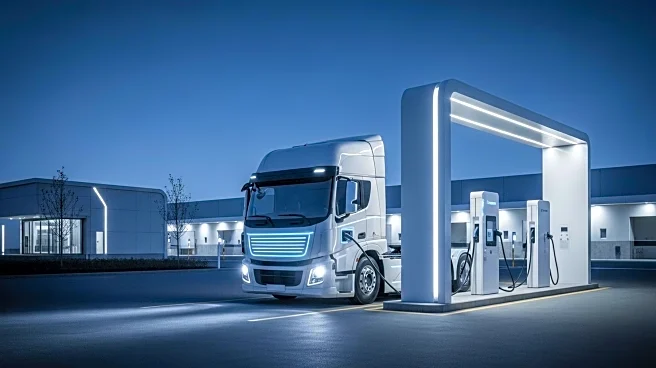What is the story about?
What's Happening?
Uber Freight and Tesla have announced a new initiative aimed at accelerating the adoption of electric trucks within the logistics industry. The Dedicated EV Fleet Accelerator Program offers purchase subsidies for fleets acquiring Tesla Semis through Uber Freight, with the condition that these trucks are committed to dedicated routes within Uber Freight's network. This collaboration seeks to lower the barriers to entry for Class 8 electric truck adoption by providing financial incentives and integrating route-matching features to optimize truck utilization. Additionally, Watco and Intramotev are exploring electrification in rail-yard operations with the deployment of Intramotev's TugVolt system, which uses battery-electric technology for autonomous rail operations.
Why It's Important?
The logistics industry is a significant contributor to carbon emissions, and the shift towards electric vehicles (EVs) represents a critical step in reducing the environmental impact of freight transportation. By facilitating the adoption of electric trucks, Uber Freight and Tesla are addressing the industry's need for sustainable solutions. The initiative could lead to increased investment in EV infrastructure, such as charging stations, and encourage other logistics companies to consider similar transitions. However, challenges remain regarding the scalability and integration of EV technology into broader logistics operations, particularly concerning cost, infrastructure, and operational constraints.
What's Next?
As the program progresses, stakeholders will be closely monitoring the economic viability and operational efficiency of electric trucks within dedicated routes. The success of this initiative could prompt further collaborations between logistics companies and EV manufacturers, potentially leading to broader adoption of electric vehicles in the industry. Additionally, Watco's experiment with Intramotev's TugVolt system will provide insights into the feasibility of electrifying rail-yard operations, which could influence future investments in rail technology.















